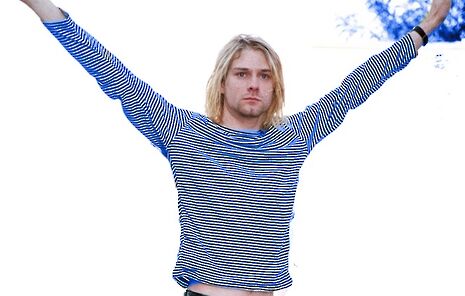Album: Kurt Cobain – Montage of Heck
A noble but failed experiment in the best way to handle the work of dead artists

I was optimistic as the release date of Montage of Heck: The Home Recordings approached. Kurt Cobain’s first posthumously released album (MTV Unplugged in New York) stands testament to the fact that he could be at his most vital and arresting divorced from the slick production of Nirvana’s titanic albums. This release, officially the soundtrack of Brett Morgen’s similarly titled documentary, is essentially a Kurt Cobain solo album of the outtakes and demos recorded at various stages of Nirvana’s development.
The first thing to say is that Montage of Heck is not an album in any meaningful sense. It instead plays like an aural stream of consciousness, collecting fuzzy, inchoate sketches. It’s not like listening to Nirvana; more submerging yourself in (what you imagine to be) Cobain’s mind. Bored fidgets, silly voices and private jokes give it a deeply voyeuristic quality. At times, this undoubtedly makes it an uncomfortable listen. However, the question is whether or not this serves to illuminate or distort Cobain’s legacy.
It certainly has its limitations. His mumbled singing and apathetic strumming are a reminder that, stripped away from the legend, Cobain was less a tortured genius and more an eternal adolescent. Moreover, these are recordings (it is generous to describe them as songs) that were never meant to be heard at all, never mind by a legion of die-hards, still obsessed with Cobain’s output two decades after his death.
Some of the tracks are bad – so bad as to make one question the utility of this exercise. The album inauspiciously starts not with a whisper but with a yodel, a painfully unfunny experience for the listener. Hearing Kurt’s voice at the end of a poor version of ‘The Yodel Song’ declare “this guitar seems to be out of tune. It’s broken.” feels almost uncomfortably invasive. Worse still is the rambling medley ‘You Can’t Change Me / Burn My Britches / Something in the Way’. While there is a certain curiosity in hearing that last song’s haunting melody accompanied by fuzzy thrash rather than the hum of a cello, the track overall is the sound of Kurt trying, and failing, to do a convincing Pixies impression.
Montage of Heck is not without its silver linings, though. Cobain’s cover of ‘And I Love Her’ not only reflects the melodic influences that were central to Nevermind, it is also a de facto soundtrack to Cobain’s relationship with Courtney Love. Moreover, even played on a squeaky, junk shop guitar, ‘Frances Farmer Will Have Her Revenge on Seattle’ showcases the undeniable power of his songwriting.
There is a debate to be had about the best way to handle the unreleased work of dead artists. Without drawing any broad conclusions, it must be said that this particular experiment has failed. It is not the exploitative, legacy tarnishing exercise it could have been, but its pointlessness has to be acknowledged. I can’t help but feel that such an eclectic set of curios would have been better off released freely rather than being packaged as a real album.
Sadly, for all of us who care deeply about Nirvana, the album better exemplifies what made Kurt frustrating rather than what made him interesting. Brett Morgen has been keen to insist the album is “not scraps and discarded, insignificant material”. Ultimately, the release tells a different story. Montage of Heck: The Home Recordings reeks of insignificance. It most certainly does not smell like teen spirit.
 News / Hundreds of Cambridge academics demand vote on fate of vet course20 February 2026
News / Hundreds of Cambridge academics demand vote on fate of vet course20 February 2026 News / Judge Business School advisor resigns over Epstein and Andrew links18 February 2026
News / Judge Business School advisor resigns over Epstein and Andrew links18 February 2026 News / University Council rescinds University Centre membership20 February 2026
News / University Council rescinds University Centre membership20 February 2026 News / Petition demands University reverse decision on vegan menu20 February 2026
News / Petition demands University reverse decision on vegan menu20 February 2026 News / Caius students fail to pass Pride flag proposal20 February 2026
News / Caius students fail to pass Pride flag proposal20 February 2026









